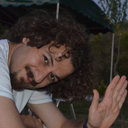Epidemiology, classification and management of undescended testes: does medication have value in its treatment?
Keywords
Abstract
Genetic, hormonal, and anatomical factors are believed to be involved in the etiology of undescended testes. Due to increased risk of infertility, testicular cancer, torsion and/or accompanying inguinal hernia (>90%) as well as cosmetic concerns, all these patients require treatment. In this review paper, we aimed to evaluate the success rates of treatment modalities used in undescended testes, beginning from 1930 to the present, and to draw attention to the possible risks and benefits and also the efficacy of hormonal therapy in the management of the disorder, which is still a controversial issue. Hormonal therapy may lead to penile growth, painful erection, and behavioral changes while on treatment. In recent years, it has been reported that human chorionic gonadotropin (hCG) treatment was associated with interstitial edema due to increased vascular permeability, inflammation-like changes, and several adverse effects on germ cells by increasing pressure and apoptotic process. It has also been reported that LHRH analogues have positive effects on germ cells by increasing fertility in patients undergoing unilateral or bilateral orchiopexy. In some studies, the success rate of hCG treatment was reported to be higher following buserelin. In some other studies, hCG treatment was recommended before orchiopexy to reduce the risk for surgical ischemia. There are a limited number of randomized controlled studies, so evidence showing the efficacy of hormonal therapy is insufficient. According to the 2007 Consensus Report of Nordic countries, it is recommended that surgery is the first-line treatment modality in undescended testes and that it should be performed by pediatric surgeons and urologists at the age of 6-12 months.



